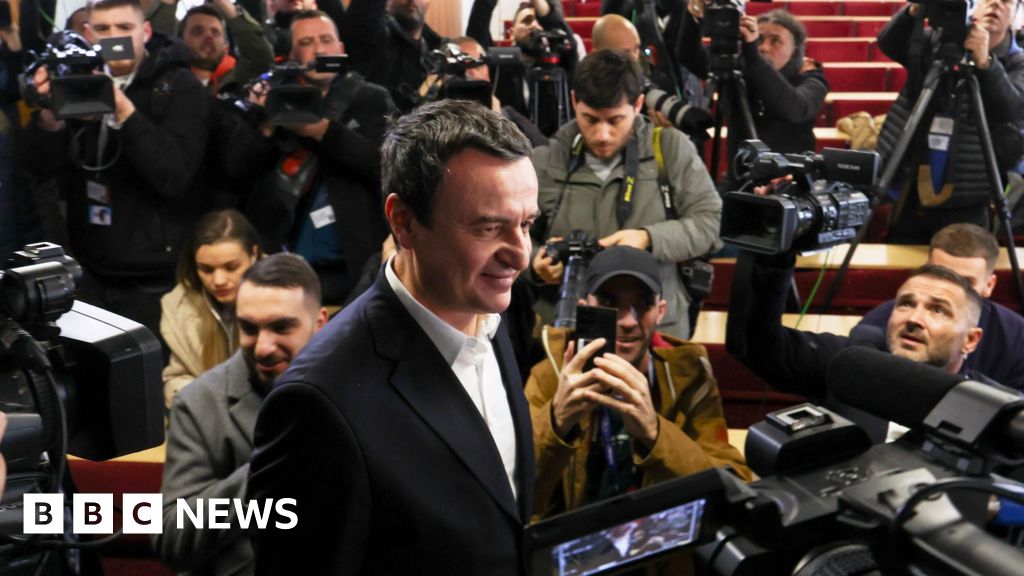Physical Address
304 North Cardinal St.
Dorchester Center, MA 02124
Physical Address
304 North Cardinal St.
Dorchester Center, MA 02124

The exit poll predicts that the ruling party in Kosovo is on the right path to win the largest number of votes in the parliamentary elections on Sunday, but it is less than the majority of the seats.
Vtevendosje, the Party of Prime Minister Albin Kurti, will win 42 % of the vote, says Koha’s news portal, which will translate into 47 seats in Parliament of 120 seats.
The ruling party in the center is expected to come to the Democratic Party in Kosovo (PDK) by 21 %, the Kosovo Democratic Association (LDK) by 20 % and an alliance of the future of Kosovo (AAK) by 6 %, showing the exit survey.
Courty arrived in power in 2021 when an alliance run by his party received more than 50 % of the votes and got a small majority in Parliament.
His popularity has been strengthened by efforts to expand government control over the majority of the ethnic majority in the north.
But this has returned to the main supporters of Kosovo – the European Union and the United States. The opposition parties call for a more reconciliation approach, and criticized the government’s treatment of the economy.
The right LDK in the middle a campaign to join NATO, restore relations with the United States. PDK was also established in the middle, by former guerrilla warfare fighters in the Kosovo Liberation Army.
“We are proud of the campaign and the day of election. We are waiting for the results, but we have already a reason for optimism,” said Frra Citako, PDK deputy leader.
Under Kosovo’s constitution, 10 deputies from the Serbian minority must come and will not cooperate with the Corte party.
The ten remaining seats are allocated to other ethnic groups, which have already cooperated with Vtevendosje, which are translated as “self -determination”.
Corte previously said he would not cooperate with any of the opposition parties.
Kosovo announced its unilateral independence from Serbia in February 2008, after years of tense relations between Serbs and ethnic dairy residents mainly.
It has been recognized by the United States and most countries of the European Union, but Serbia, supported by its powerful ally, Russia, refuses to do so, as most ethnic Serbs do inside Kosovo.